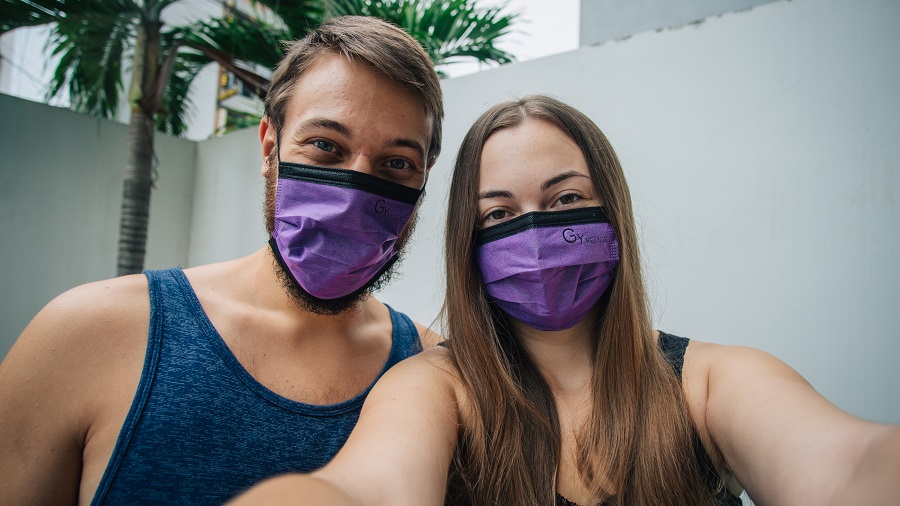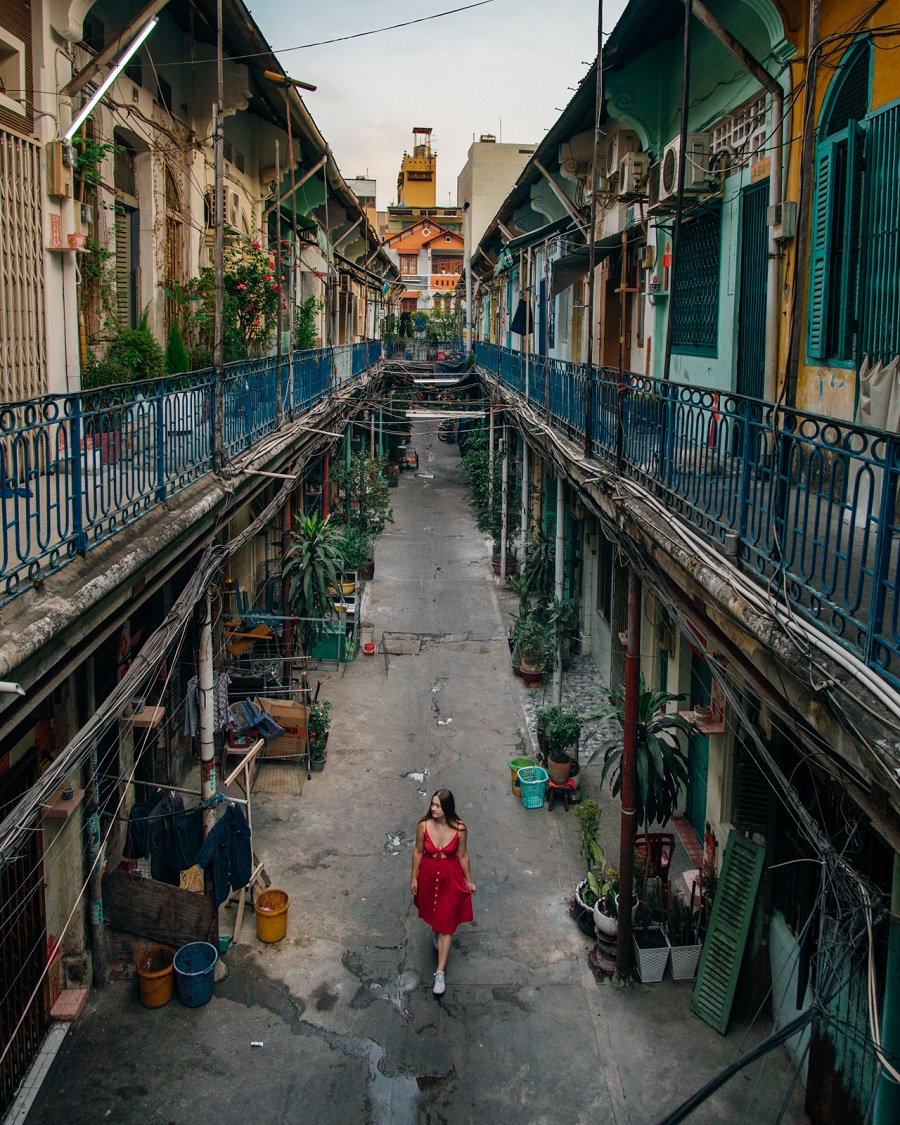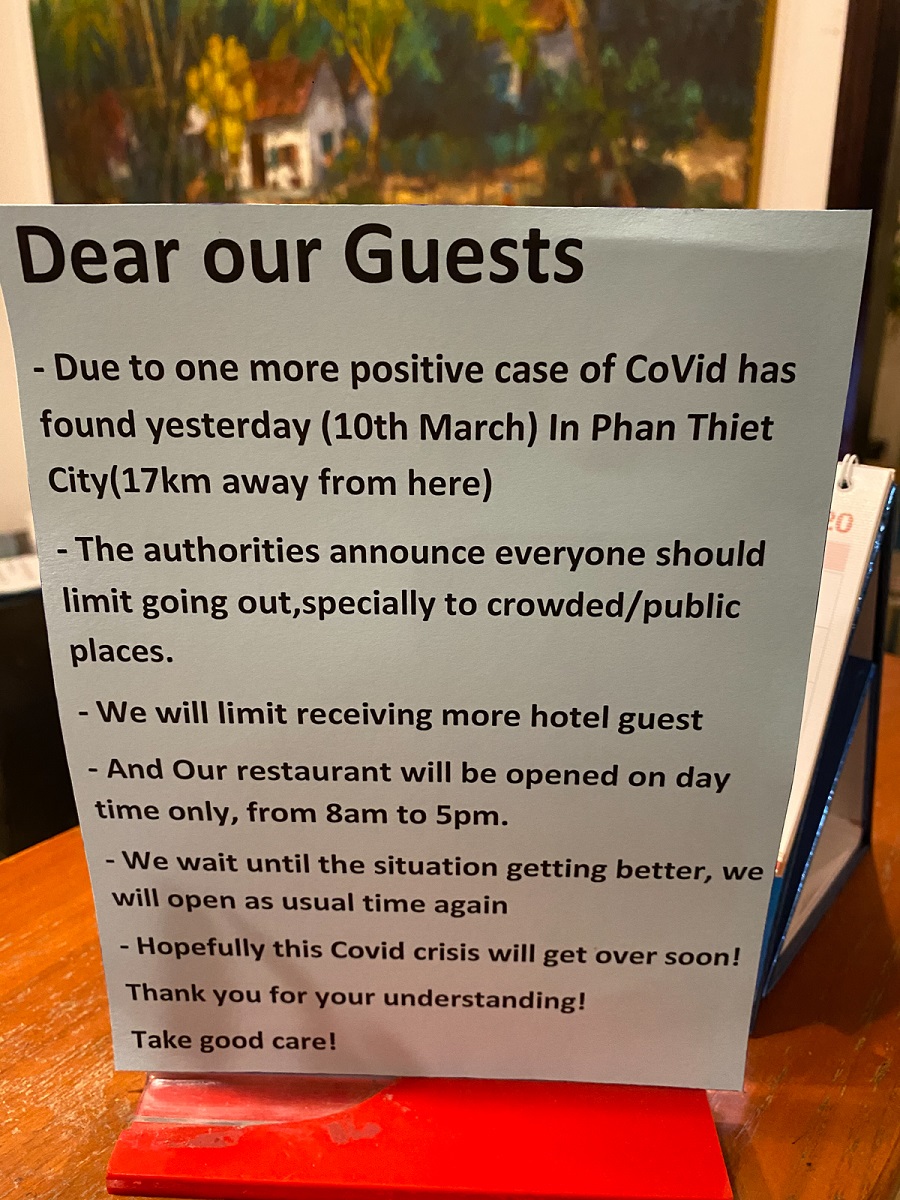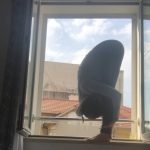April 18, 2020 – With as many Croatians living abroad as in the Homeland, what are the diaspora experiences of self-isolation? In the 8th of a new series, Corona Voices in the Croatian Diaspora, here is Arijana Tkalcec in Vietnam and originally from Ferdinandovac.
Last week TCN started a feature series called Foreigner Self-Isolation In Croatia: Do You Feel Safer? I can honestly say we have never had such a response or so many incredible contributions. The countries of origin of these expats in Croatia literally from all over the world. So far we have had submissions from expats from Romania, USA, Ireland, UK, Mexico, Argentina, Spain, Singapore, Holland, Canada, India, Hong Kong, Venezuela, Latvia, China, Honduras, Hungary, Moldova, New Zealand, Japan and Germany. You can see all their stories here.
Given the success of the series (still going strong) and large interest, it made sense to expand it to look at this from another angle – how Croatians abroad are coping where they are. If you would like to contribute your story to Corona Voices in the Croatian Diaspora, please find the submission guidelines below. Next up, Arijana Tkalcec in Vietnam and originally from Ferdinandovac.
I’m Arijana, a full-time traveler in the making. I got my masters in journalism but decided to go in a bit different direction from traditional journalism. Coming from Ferdinandovac, a small village in Croatia, I’ve always dreamt about exploring the world. My itchy travel feet don’t let me stay in one location too long. Traveling is my passion, and I’m always on the lookout for new adventures (I especially love treks, waterfalls and van life). I’m a fan of slow travel, which enables me to experience the best of the country I’m in. I love learning about other cultures, getting to know locals, and visiting places without a need to rush.
If you want to follow my adventures, here is my Instagram page: @arijana.tkalcec (https://www.instagram.com/arijana.tkalcec/)
My website: https://shippedaway.com/
Firstly, how are you? Are you alone/with someone? Tell us a little about your situation and sanity levels.
Hello from Da Nang, a beautiful coastal city in Central Vietnam known for its sandy beaches. The city is also popular amongst digital nomads as it has everything needed for a normal life.
At the moment, I’m great, trying to make the most out of the current situation. It took some time to process what’s actually happening, but it’s all good now. However, I miss the adventure so much! I hate being closed inside.
I’m here with my boyfriend Matej (he’s Slovenian), and our plan was to travel around South East Asia for seven months. First, we were in Bali for a month, and now we’re willingly ‘stuck’ in Vietnam. I guess our trip is put on hold for a while. We’re still sad about that as we had big plans, but we still hope the situation will get better soon so we can continue traveling.
When did you realise that corona was going to be a big issue?
When we started our journey in January, the coronavirus was already well known. But nobody saw it as a huge threat as it was still mainly in China. When we entered Vietnam on February 26th, there were 0 active cases (16 were reported previously, but all of them were cured). For about two weeks, we explored freely, and everything was normal. We were leaving Can Tho in Mekong Delta, heading towards a small coastal town Mui Ne, when the situation started to change. The cases in Europe began to rise insanely, and there were already reported cases in Croatia too. Vietnam right away started putting some restrictions on foreigners coming from high-risk areas.
When did you realise that corona was going to be a big issue in Vietnam in particular?
Around March 19th our hotel in Mui Ne put the notice about the new case reported 17 kilometers away from our town. That’s when the situation here slowly started to change. Restaurants began closing down, hotels closed or had limitations about the number of tourists they were taking in, etc. But those were small changes, and we (as well as other tourists) weren’t bothered with that. We continued our trip to Dalat, and there’s where we realized that situation is way more serious than we thought. First of all, locals were scared of us as many new cases in Vietnam came from abroad (whether it’s through foreigners or Vietnamese coming back from overseas). They would pull up the mask when we were passing by, we even got denied entry to one local restaurant, etc. It wasn’t the most comfortable situation. Then masks became mandatory, Vietnam started closing borders, there was a massive cancellation of flights to Europe – it was evident that in the next few weeks/months won’t be the most pleasant ones.
Give us a timeline on when and how life changed.
Considering the situation, in Dalat we had to make one of our most significant decisions yet: should we stay here or go home. It wasn’t an easy decision for sure, and it took us the whole week to make the final decision to stay. Our families support that decision 100%, and they actually think we’re safer here, so they wanted us to stay.
Why did we decide to stay? Firstly, flying in this situation didn’t sound appealing to us. Many confirmed cases in Vietnam were connected to flights. Secondly, we already have our ticket back to Zagreb in September from Bali. This would be an additional financial cost that we couldn’t afford. The tickets were too expensive, flights were getting canceled, many people got ‘stuck’ at airports, they had to buy multiple tickets because of the cancelations. It was too risky. Thirdly, if we did come back to Croatia, self-isolation of 14 days was mandatory. The only place we could go to was my parents’ house, and that way we could put them at risk too. Lastly, the fact that my boyfriend is from Slovenia, which was already completely closed, made even more problems.
After our final decision to stay, we had to act fast. It was a matter of time when the country would go on lockdown, so we had to choose the place we want to ‘get stuck in.’ We chose Da Nang. To get there, we took a 6 hours bus to Nha Trang, where we stopped for a few days. The situation there was much different than Dalat. Everything was full of tourists (mostly Russians), many people didn’t wear masks, the beach was full of people. We weren’t sure what to think about that because the rest of the country was in a full-on panic, while here everything was so relaxed.
It took another 10 hours to reach Da Nang with the train. There was a shocking scene when we entered the Da Nang train station. People in full-on blue suits accompanied by police were waiting at the entrance. One guy held an English sign just for us as we were the only tourists on the train. I was so scared when I saw them as I didn’t know what’s going on. My first question was: ‘What will they do to us?’. But I have to mention how kind and understanding they were. It made me much calmer. All of us went through a temperature check and hand disinfection (two times). As foreigners, we had to fill in some documents. There were questions about which places we visited, where we are staying, when did we enter Vietnam and how, etc.
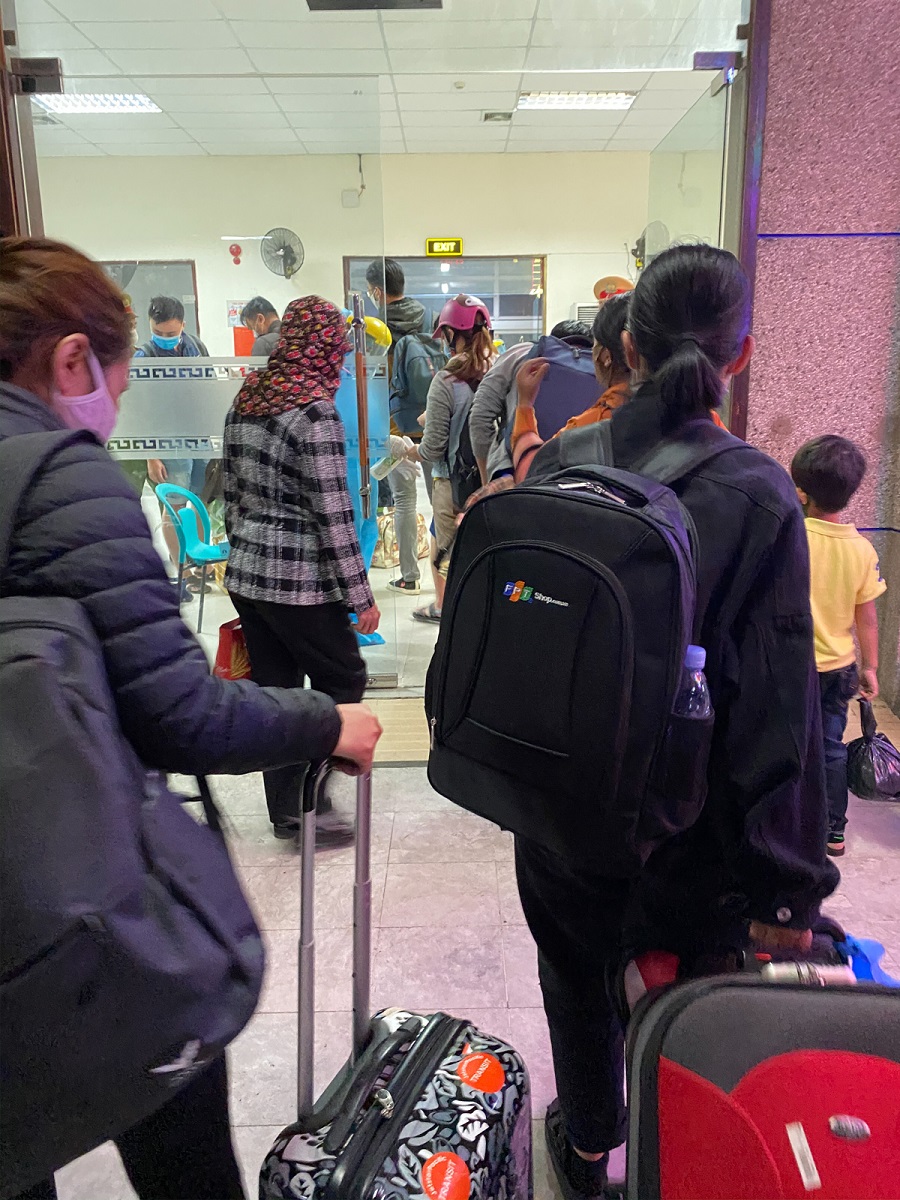
We also had to download their Health Declaration app and fill in our information. Every day the app asks us if we’re feeling well or have any symptoms. That way, they can track how we are feeling. If anyone needs any help, they can react much faster than in other countries. Each person is identified with a certain number, which can be scanned through a QR code.
And now we’re here. We came to Da Nang at the very last minute. The next day the city was closing down. We got lucky with finding accommodation because many didn’t accept foreigners anymore. It was the government’s order, so they stop the unnecessary movement.
Tell us about your day. Do you/can you leave your apartment?
The official lockdown (or social distancing measures – the official name they use) was from April 1st until the 15th, but now they extended it for another week. Although there’s a huge possibility it will be extended again. We’re advised to go out only if necessary, but you can go for a walk, exercise, etc. However, there are many restrictions, especially in the area where we are as it is considered a bit more touristic. The beach is closed. It’s not possible to get near it as the police and lifeguards are patrolling the area.
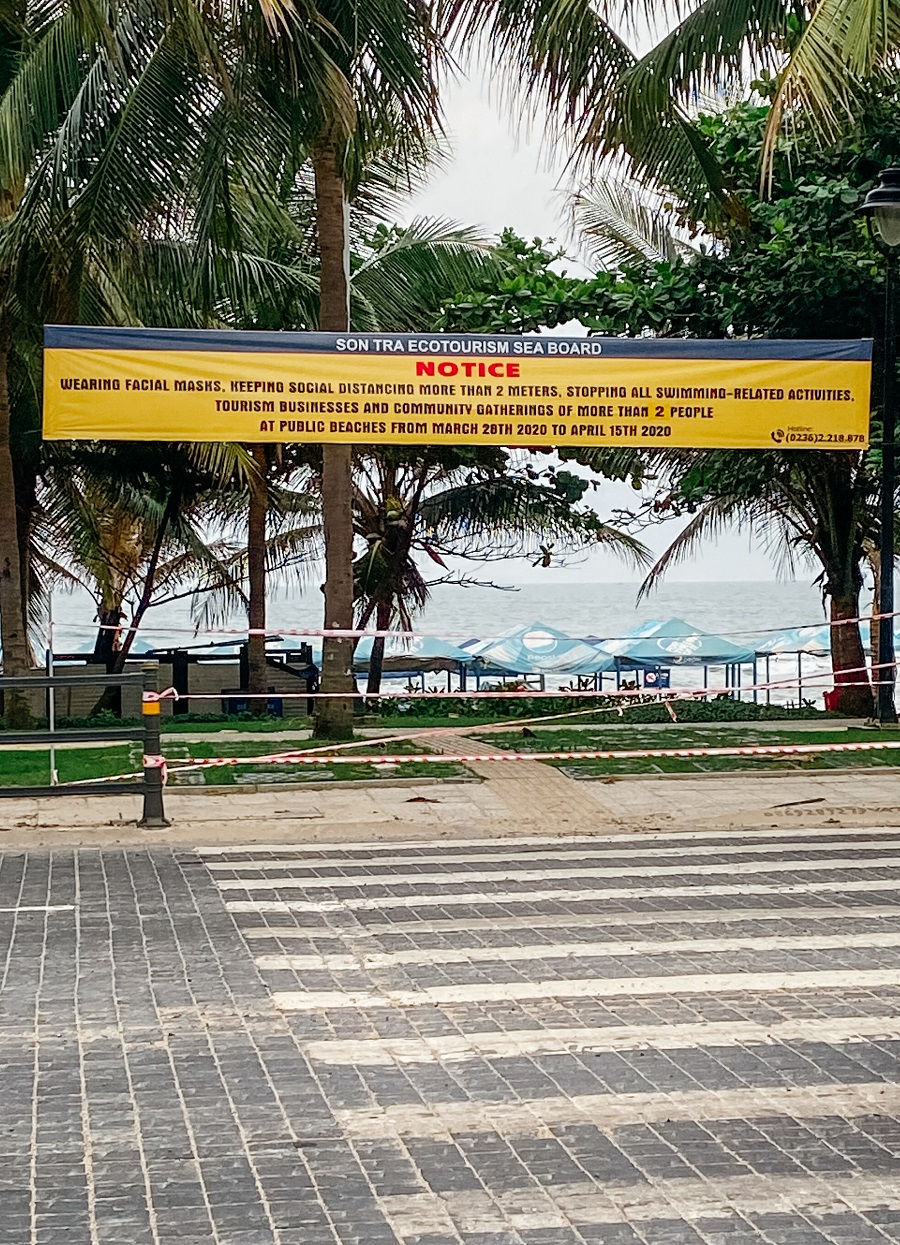
We don’t go out much during the day as it’s a bit annoying with all the restrictions, and it can be quite busy. That’s why we go for night walks around 11 pm. Then we go to the beach because there’s no police patrolling the area, and not that many people. Although more and more people started doing the same.
Other than that, we try to make some kind of routine. I finally started working out. This is also the perfect time for learning something new as there are many free webinars and courses about everything. I’m using this situation to improve my skills. There’s always something to do. We’re not bored at all.
How are the authorities doing at handling the situation?
I think they are doing pretty well. Many police officers are patrolling the area. You know what the rules are, and if you break them, they start whistling right away, letting you know you did something wrong. Other than that, there are fines too, so people are respecting the rules. Vietnam reacted very fast, put strict measures, and they are sticking to it. At the moment, they have only 67 active cases and 0 deaths. For now, we feel safe here.
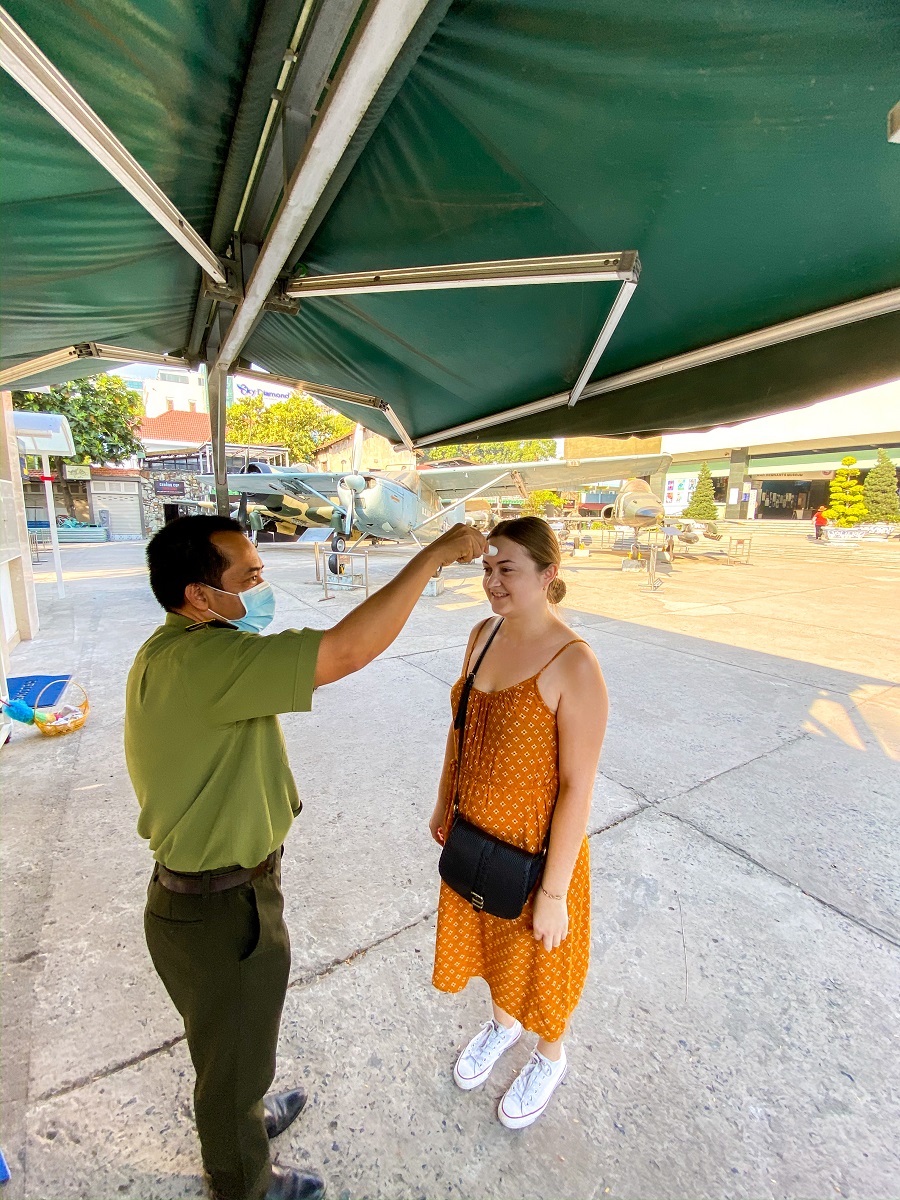
You obviously keep an eye on your homeland. What is your impression of the way Croatia is dealing with the crisis?
Honestly, I don’t watch the news that much anymore. I quickly check the situation in Vietnam, so we stay up to date with any new regulations. It was stressing me too much, so I decided to cut that. 😀
But when I still watched the news, the only thing I saw was people breaking self-isolation and putting others in danger. If the measures against that were stricter or people were better educated about the situation, I’m sure those cases would be rarer.
Compare and contrast the responses of Croatia and Vietnam. Who is doing what better?
I’m not that familiar with all the measures from both countries. Considering Croatia, I know what I hear from my family, and the thing I dislike a lot is not being able to move from one municipality to another. We know that Croatia has way too many municipalities aka ‘općine’, and now it is clear that they are entirely useless (it was clear even before but…). For example, my parents are living in the village, which is an ‘općina’ for itself, and they don’t have any big grocery store there. Where to make that ‘big shopping’ then? The small local stores are so expensive (now even more), and they don’t have fresh products. Sometimes, you can also find expired products (without a discount). They’re not allowed to go to the small town nearby without a pass (I don’t even want to comment on that), so many people in the same situation are having issues. Vietnam also has restricted movement across provinces, but those are much bigger areas, and that makes much more sense.
Also, I don’t get how limited the working hours of the stores help. The workers are still exposed to people coming, so what difference does it make. Here the grocery stores work regular hours, which I find better as people spread more equally during those working hours. And people don’t stack up on the groceries.
What about official communications from the authorities, compared to your home country?
I’m not sure how it is in Croatia, but here there are signs everywhere explaining social distancing measures. They even have audio coming from the speakers close to the beach explaining the rules. Signs and audio are both in English and Vietnamese. Every day they are sending messages reminding you to wash your hands and stay inside. Online taxi apps (like Grab, which is similar to our Uber) sends you notifications about measures and precautions too. Vietnam even made a viral song about coronavirus intending to educate its citizens. There is also a choreography with dances moves that show the right way of washing your hands. The conclusion is, both locals and foreigners are well informed about everything that’s going on.
What’s the one thing you wish you had taken with you into self-isolation?
This is a hard question. I don’t feel like I miss anything at the moment. However, I wouldn’t complain if we had a pool. I’m losing my tan and starting to look like a ghost again (I am very pale). Also, I wish I had more money for all the excellent tools, courses, etc. on huge discounts now. But there’s just too many.
One thing you have learned about yourself and one thing you have learned about others during this crisis.
Once again, I learned how much I hate being stuck inside. I was a lot inside before this trip as I worked from home, and the reason we started this trip is for adventure and exploring. And now we’re back doing the same. 😀
I learned stressing too much about the situations you can’t control won’t be of any help. You’ll just end up being unhappy. The best thing is going with the flow, solve one problem at a time, and adapt to the situation. The faster you adapt, the easier it gets.
In this crisis, you could see the worst and the best in people. Those two extremes were really seen now.
I also learned how bad situations connect people and how many are ready to help. I made some friends in all this mess as we all reached out to one another, trying to make the right decisions.
If you could be self-isolating in Croatia, where would it be, and why?
I don’t have any specific location in mind. My go-to place would be the same for any country: some mountain cabin with a lot of nature and a lake nearby, an isolated spot so I could go out in nature whenever I want, without many people around.
Thanks, Arijana. Stay safe and see you on the other side. You can see all the stories in both this diaspora series, and the one on expats in Croatia on this link.
TCN is starting a new feature series on Croatian diaspora experiences of sitting out COVID-19 abroad and comparing your experiences to the situation in Croatia. If you would like to contribute, the questions are below. Please also include a para about yourself and where you are from, and a link to your website if you would like. Please also send 3-4 photos minimum to [email protected] Subject Corona Diaspora
If you would be interested to record a video version for our partners www.rplus.video please let us know in the email. Thanks and stay safe.
Self-Isolation Voices from the Diaspora
Firstly, how are you? Are you alone/with someone? Tell us a little about your situation and sanity levels.
When did you realise that corona was going to be a big issue?
When did you realise that corona was going to be a big issue in New York in particular?
Give us a timeline on when and how life changed.
Tell us about your day. Do you/can you leave your apartment?
How are the authorities doing at handling the situation?
You obviously keep an eye on your homeland. What is your impression of the way Croatia is dealing with the crisis?
Compare and contrast the responses of Croatia and USA. Who is doing what better?
What about official communications from the authorities, compared to your home country?
What’s the one thing you wish you had taken with you into self-isolation?
One thing you have learned about yourself, and one thing you have learned about others during this crisis.
If you could be self-isolating in Croatia, where would it be, and why?
TCN has recently become a partner in Robert Tomic Zuber’s new R+ video channel, initially telling stories about corona experiences. You can see the first TCN contribution from this morning, my video from Jelsa talking about the realities of running a news portal in the corona era below. If you would like to also submit a video interview, please find Robert’s guidelines below
VIDEO RECORDING GUIDE
The video footage should be recorded so that the cell phone is turned horizontally (landscape mode).
There are several rules for television and video news:- length is not a virtue- a picture speaks more than a thousand words
In short, this would mean that your story should not last more than 90 seconds and that everything you say in the report should be shown by video (for example, if you talk about empty streets, we should see those empty streets, etc.).
How to do it with your cell phone? First, use a selfie camera to record yourself telling your story for about a minute and a half. Ideally, it would be taken in the exterior, except in situations where you are reporting on things in the interior (quarantine, hospital, self-isolation, etc.). Also, when shooting, move freely, make sure everything is not static.
After you have recorded your report, you should capture footage that will tell your story with a picture, such as an earlier example with empty streets.
One of the basic rules of TV journalism is that the story is told in the same way as a journalist with his text. Therefore, we ask you for additional effort. Because we work in a very specific situation, sometimes you may not be able to capture footage for each sentence of the report. In this case, record the details on the streets: people walking, the main features of the city where you live, inscriptions on the windows related to the virus, etc.
The same rules apply if you are shooting a story from your apartment, self-isolation, quarantine. We also need you to capture footage that describes your story.
When shooting frames to cover your reports, it is important that you change the angle of the shot (in other words, shoot that empty street from several angles). Also, when shooting a detail, count at least five seconds before removing the camera to another detail.
The material should be about 5 minutes long (90 seconds of your report + frames to cover your story).
After recording everything, send us to Zagreb, preferably via WeTransfer to [email protected]

